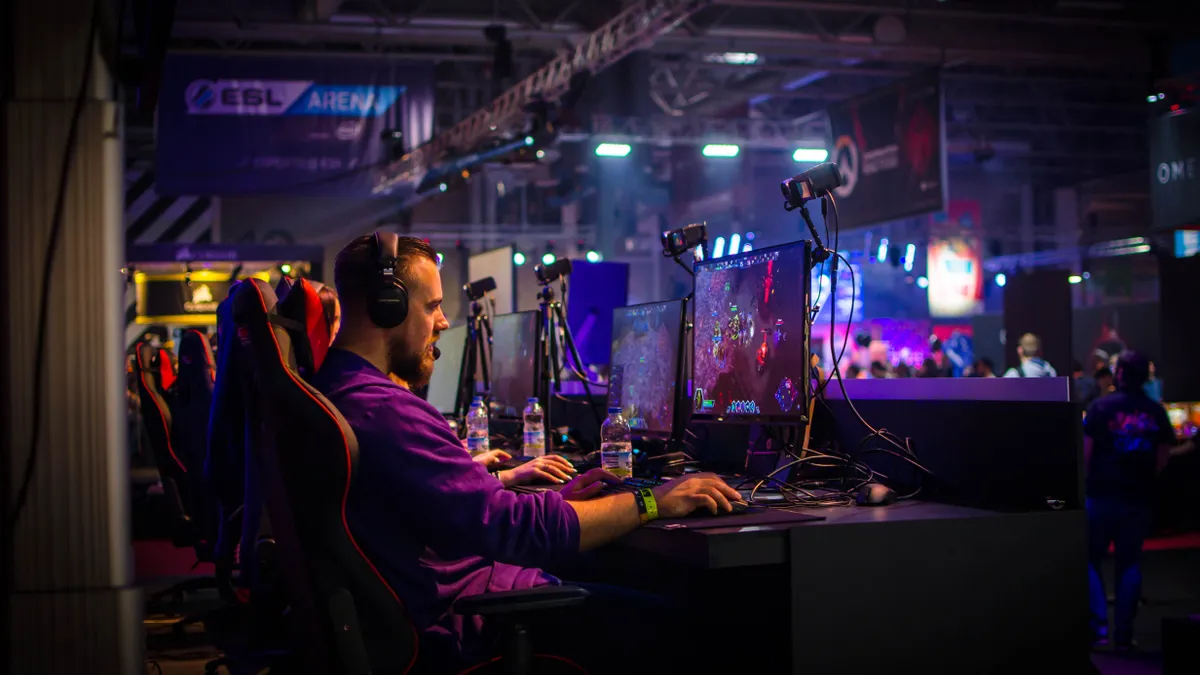Dive Brief:
-
Esports clubs can help students strengthen digital citizenship skills, build a sense of community and illuminate career pathways in STEM, John McCarthy, a teacher and education consultant, writes for Edutopia.
-
School esports clubs can use the online behavior expectations outlined in the ISTE Standards for Students as a framework for helping students develop digital citizenship skills, in addition to providing mentorship on the future impact of students' digital footprints and also building teamwork, communication and empathy, he writes.
-
McCarthy, who created a checklist to help schools get started, recommends first launching a gamer club affiliated with the North America Scholastic Esports Federation for access to tools and resources that help get the effort off the ground.
Dive Insight:
A billion-dollar industry has grown around esports and casual competitive gaming, and according to data from Pew Research Center, 77% of men and 57% of women ages 18-29 play video games. As that popularity grows, some high school gamers are earning scholarships. In the 2018-19 school year, 200 U.S. colleges offered $16 million in esports scholarships — three times the amount offered in 2015.
The clubs can also pave a career path, as these interests and experiences can guide students toward a STEM career, including pathways in video game development.
Though esports clubs were gaining popularity prior to the pandemic, the constraints of social distancing served to further spotlight the competitions. Just as the abrupt interruption of the 2020 NBA season in March 2020 led players to compete online in the NBA 2K Players Tournament, so too did esports gain popularity as an extracurricular alternative for schools forced to virtual learning by COVID-19.
As EdTech: Focus on K-12 notes, however, there are growing pains to consider when launching a program, including lack of access to necessary equipment and reliable broadband connections. On the equipment front, however, it advises not to waste money on unnecessary extras, similar to how designer uniforms and gear aren't essential to win in a traditional sports game.







 Dive Awards
Dive Awards






